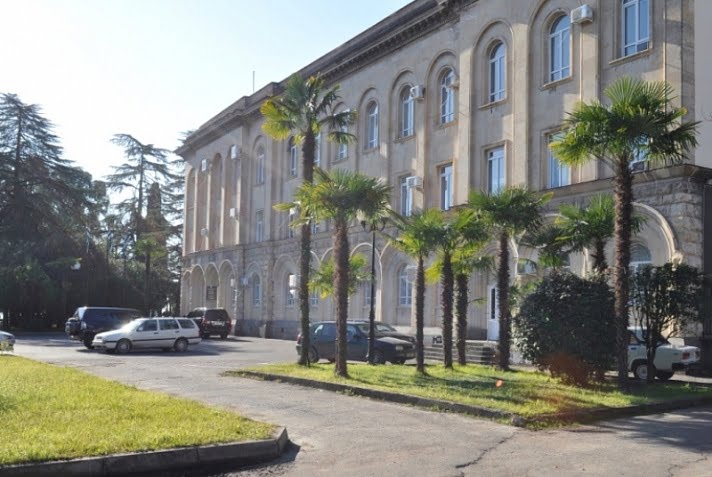Lawmakers in Russian-occupied Abkhazia adopted legislative amendments that will clear the path for the ethnic Georgian majority of the Gali district to obtain passports through “restoring Abkhaz ethnicity,” Sokhumi-based Nuzhnaya Gazeta reported.
There are some 30,000 ethnic Georgians in Gali who are deprived of any political rights after the Kremlin-backed authorities stripped them of Abkhaz “citizenship” in 2014 and 2017.
But the Gali residents would have to change their Georgian family names to Abkhaz surnames to receive the papers.
The amendments package went through a nearly year-long legislative process after “parliament speaker” Valery Kvarchia tabled the relevant bill in March 2021.
A new clause introduced today to the Abkhaz law on acts of civil status stipulates that foreign citizens and stateless persons residing in Abkhazia now enjoy the said right of “restoring Abkhaz ethnicity,” according to Sokhumi-based Apsnypress agency.
The package also included amendments to the civil code, introducing the “restoration of Abkhaz ethnicity” as one of the civil status acts.
Noteworthy, Article 5(a) of the occupied region’s law on “citizenship” defines any people of Abkhaz ethnicity as “citizens,” regardless of their place of residence or if they hold a citizenship of a foreign state, and unless they advocate “changing the sovereign status” of Abkhazia, among others.
Thus, some Abkhaz lawmakers expressed concerns over the proposed amendments before the final vote, arguing the new rules could allow Georgian citizens to obtain Abkhaz “citizenship.”
Meanwhile, speaker Valery Kvarchia backed the package, stressing that “how we vote for these amendments is how we will remain in history,” Apsnypress reported.
Another lawmaker, Givi Kvarchia argued that endorsing the changes would be a return of “historical justice,” arguing that in the 1930s thousands of Abkhaz people were forced to change their ethnic identity.
The lawmaker referred to a long-standing claim by Sokhumi that the native ethnic Georgian population of Gali actually are ethnic Abkhaz people who were “Georgianized” during the Soviet Union.
The Tbilisi-based Abkhazian Supreme Council, the exiled legitimate legislature of Abkhazia, has previously slammed such claims as “pseudo-historical theory” and a “shameless lie.”
The Council has also described proposals by previous Kremlin-backed leadership to allow Gali residents political rights only through “restoration of Abkhaz ethnicity” as “unacceptable experiments on the Georgian population” and “a new form of discrimination against Georgians – an attempt to forcefully change their ethnicity.”
The move also has opponents in occupied Abkhazia, where an influential group of hardline Abkhaz war veterans warned the lawmakers back in April 2021 not to endorse the now-adopted legislation.
The same group has in the past decried suggestions by Abkhaz leadership, under Aslan Bzhania, to unconditionally issue Abkhaz passports to Gali Georgians.
Gali residents were internally displaced during the armed conflict of 1990s but subsequently returned to occupied Abkhazia. The absolute majority of the Gali residents hold Georgian citizenship.
Tbilisi has repeatedly raised the issue of discrimination against ethnic Georgians in Abkhazia, including their inability to receive education in their native language.
Also Read:
This post is also available in: ქართული (Georgian) Русский (Russian)

